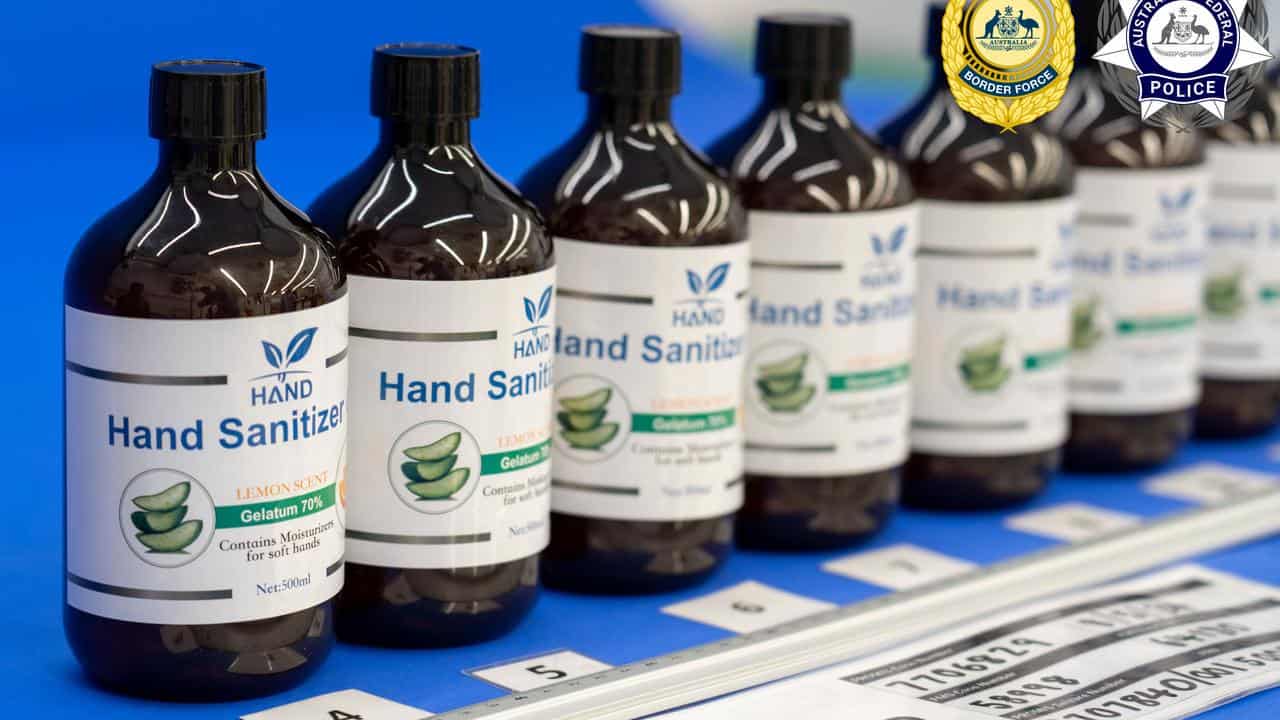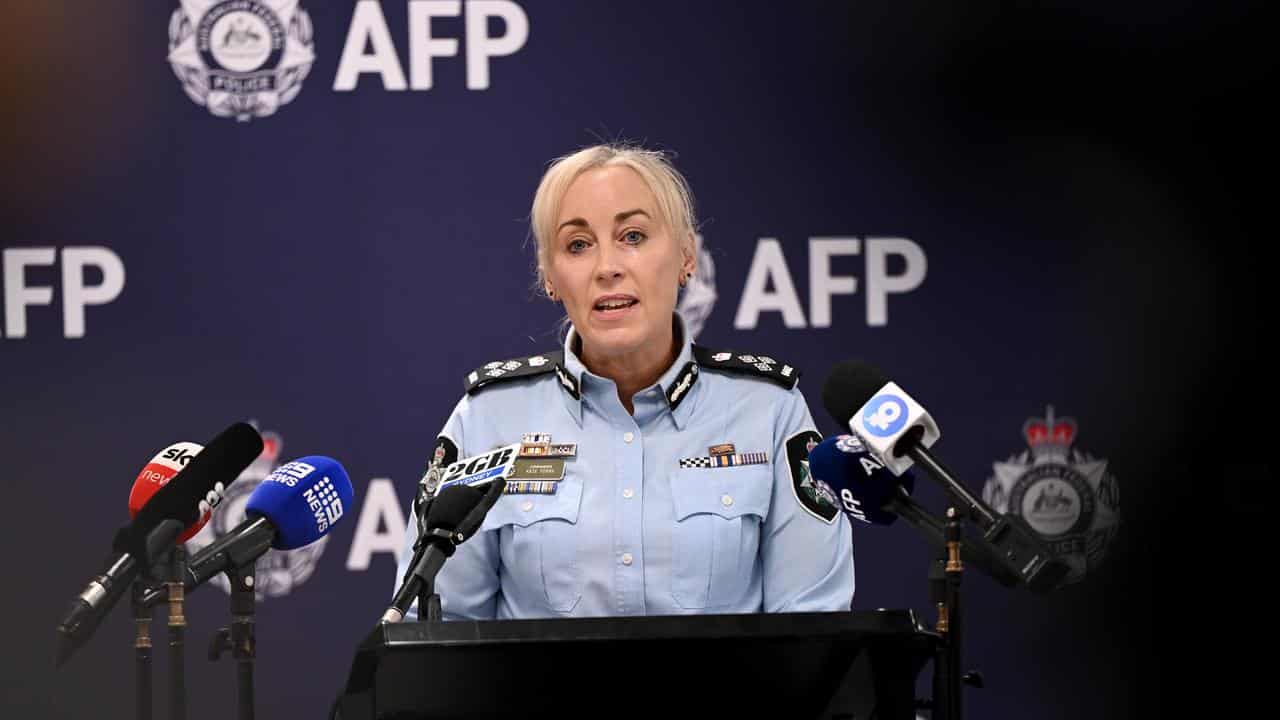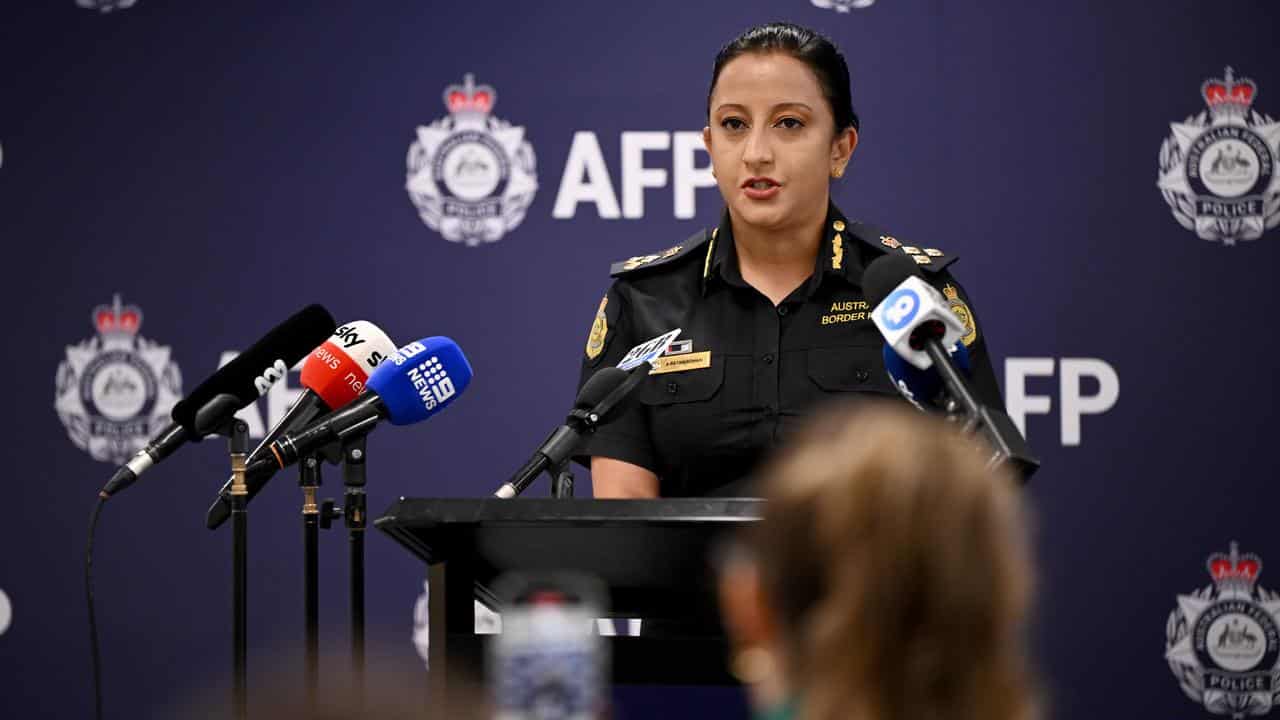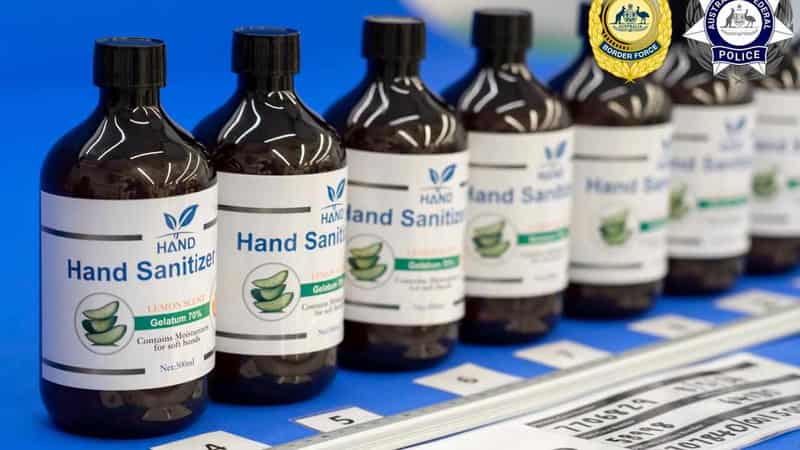
Benign-looking beauty products and food items have been used to smuggle thousands of litres of a dangerous date-rape drug into the country in the months after import restrictions were tightened.
Authorities have stopped the illegal importation of 4200 litres of butanediol - commonly known as "bute" - in the three months since laws were changed to make it a border-controlled drug.
When consumed, the drug is metabolised into gamma-hydroxybutyrate (GHB), which slows down the brain's messaging to the body.
Australian Federal Police commander Kate Ferry said the drug, which is an industrial chemical typically used to produce plastics, was “extremely dangerous and damaging to humans”.

It was difficult to quantify the frequency of its use in sexual assaults because it presented as GHB when subsequently tested, she said.
“But anecdotal evidence from state and territory law enforcement agencies is this is coming up and has been since about 2020 as predominantly used in date-rape cases,” Ms Ferry said on Thursday.
“So it's significant enough for the commonwealth government to make that legislation change and put it at the height of the most serious drugs in Australia.”
Australian Border Force officials detected 180 litres of bute that had been imported from China in bottles labelled as body oil on March 7.
That led the AFP to search warehouses in the Sydney suburbs of Fairfield and Lidcombe, where they found around 1400 litres in total.
Another haul led to 960 litres imported to Sydney from China being found in bottles labelled as essential oils.
The drug can be imported legally, but only with the correct permits.
Australian Border Force acting commander Asha Patwardhan said shipments of the drug were being found on a near-daily basis.

“Typically we are seeing the imports originate from the Asian market, with the majority of larger quantities from China,” she said.
“Our officers are observing individuals and criminal syndicates attempting to import bute in concerning volumes,” she said.
Ms Ferry said women in particular should be cautious about who had access to their drinks, but she added the agencies' work was designed to take the onus off potential victims.
“Australian women are a little tired of being told what to do in terms of being safe for themselves,” she said.
“We're here today saying this is a whole of Australia problem, what the AFP and the ABF will do is actually target these people who are bringing this drug in in the first place, that ends up in women's drinks leading to harrowing consequences for them.”
Importing a commercial quantity of a border-controlled drug attracts a maximum penalty of life imprisonment.









